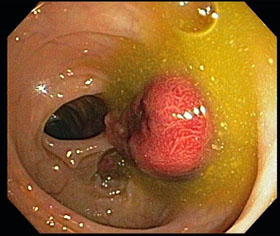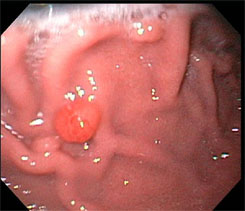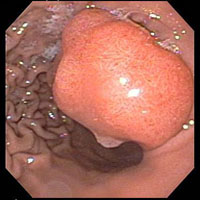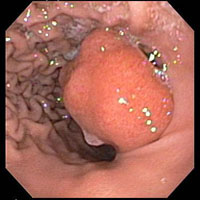Polyps in the Gastrointestinal Tract
An intestinal polyp is a growth of tissue in a small rounded form on the lining of the intestines. Polyps may be either very tiny or larger (up to an inch in diameter). Polyps can be found in almost any part of the gastrointestinal tract, although they are the most commonly found in the colon. It is not known what causes polyps to develop. Children will most likely have hypertrophic or benign polyps. However, they may develop polyps which may be cancerous. Some people are more likely to develop polyps than others, especially if family members have had polyps (genetic). Other people may have a condition known as familial polyposis syndrome (FAP) in which the intestine contains several polyps throughout the colon. The polyps in people with this syndrome are more likely to be cancerous. Typically though, polyps are not cancerous and can be easily removed. Symptoms Frequently, people with polyps do not experience symptoms. Others may experience:- Blood in stool
- Anemia
- Abdominal pain
- Diarrhea with mucus
- Intussusception


Polyps seen in Child with Familial Polyposis


Polyps found in the stomach
















